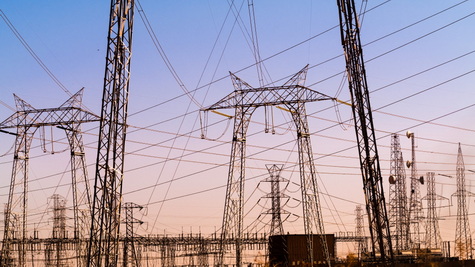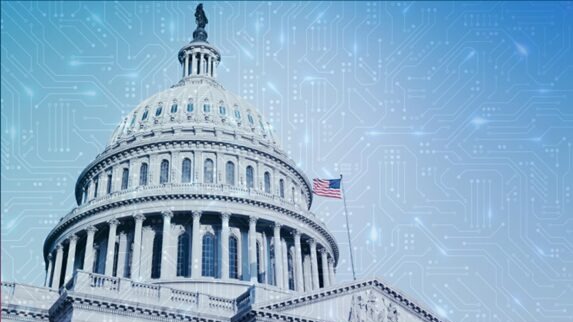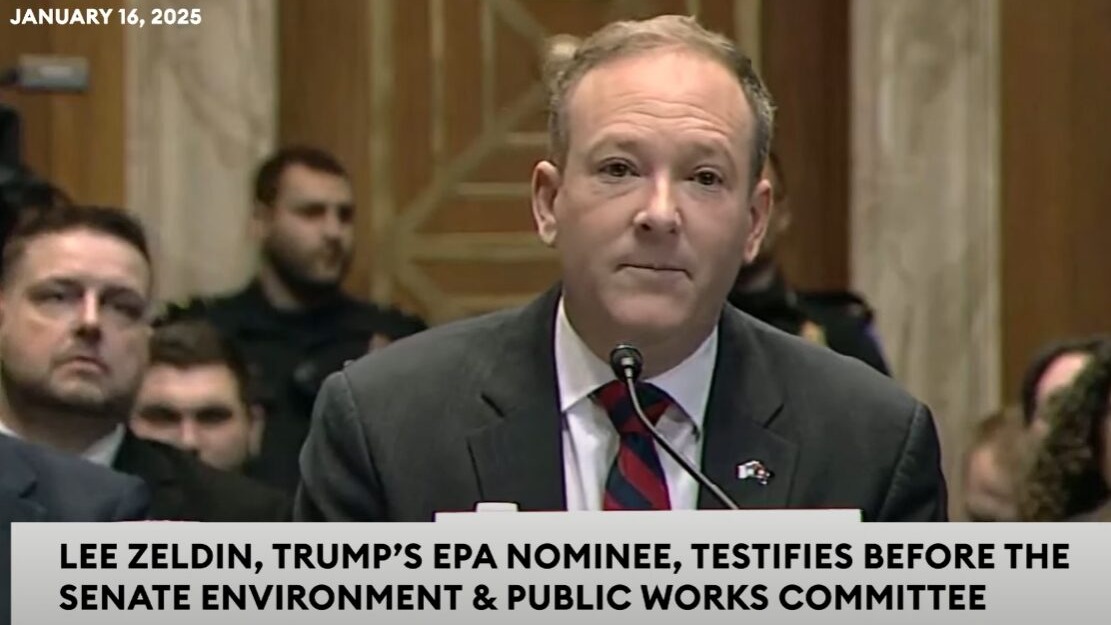
This week’s confirmation hearings shed light on the Trump Administration’s ambitious energy agenda, including plans to expand American energy production, streamline project approvals, and explore a carbon tariff on imports. (PoliticoPro, Jan. 16)
“All of the Above” Energy Policy
- President-elect Trump has prioritized “drill, baby, drill” as a cornerstone of his agenda, emphasizing energy independence and dominance through increased domestic oil and gas production.
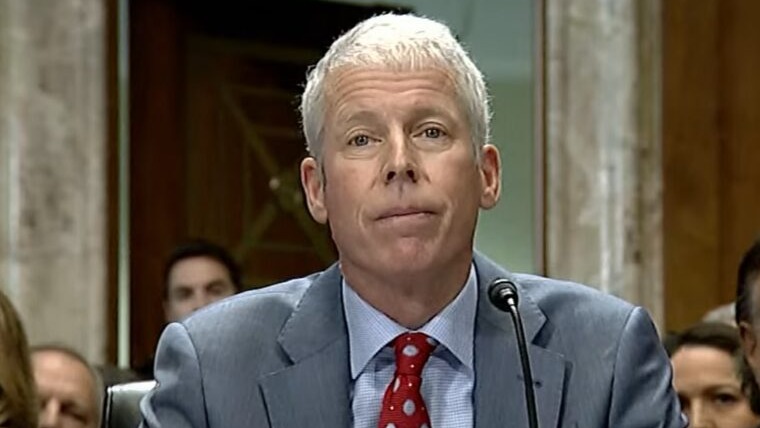
- Chris Wright, the Energy Secretary nominee, told the Senate Energy Committee on Wednesday that he would use the role to “unleash American energy at home and abroad” if confirmed. (Reuters, Jan. 15)
- Wright said in his opening statement that he would focus on three objectives: removing barriers for energy projects, accelerating innovation by the national laboratories, and advancing U.S. energy domestically and abroad. (Roll Call, Jan. 16)
- North Dakota Governor Doug Burgum, the Interior Secretary nominee, said at his Thursday confirmation hearing that the U.S. must expand domestic energy production and electricity generation to meet growing demand, particularly from AI technologies. (Politico, Jan. 16 | Roll Call, Jan. 16 )
- Burgum supports an “all-of-the-above” approach that would utilize renewables and fossil fuels. Trump has also tapped Burgum to lead a White House-based energy council that would coordinate policy across the federal government. (Politico, Jan. 9)
- Former Representative Lee Zeldin, the nominee for EPA Administrator, said at his Thursday hearing he would work in a bipartisan manner with career staff to fulfill the agency’s mission. (PoliticoPro, Jan. 16 | The Hill, Jan. 16)
- Zeldin vowed to address climate change without “suffocating the economy,” and committed to private sector collaboration to “promote common sense, smart regulation.” (NBC News, Jan. 16 | Washington Post, Jan. 16)
Carbon Tariff Proposal
- During his Thursday confirmation hearing, Treasury Secretary nominee Scott Bessent (see Policy Landscape story above) expressed interest in a carbon tariff on imports, suggesting it could be part of a broader Trump administration strategy to raise revenue, counter unfair trade practices, and boost negotiating leverage.
- Bessent indicated the potential for such measures to align with the administration’s broader trade and economic goals. (PoliticoPro, Jan. 16)
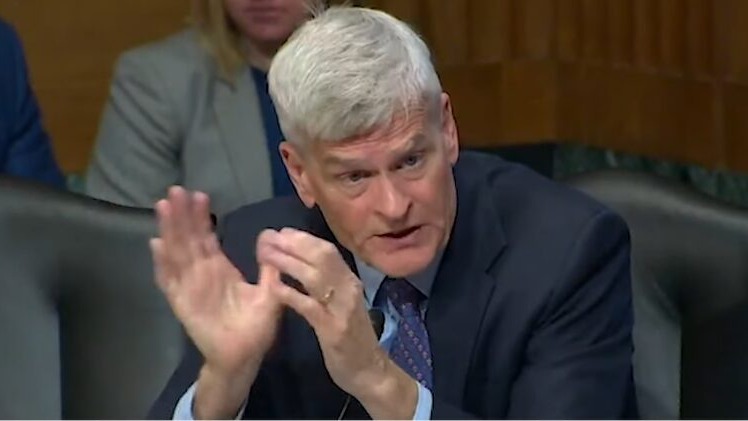
- Recently, Sen. Bill Cassidy (R-LA) proposed a bill, the “Foreign Pollution Fee Act” that would impose a “foreign pollution fee” on imported carbon-intensive products – including construction materials. (E&E News, Dec. 12)
- The bill’s co-sponsor, Sen. Lindsey Graham (R-SC), spoke about the bill at Bessent’s hearing. “If you want to clean up the environment, a carbon fee seems to be a good way to do it, to punish China and India for bad carbon practices,” Graham said. (Politico, Jan. 16)
- The Roundtable submitted comments today on the Foreign Pollution Fee Act. The letter raises concerns regarding the impact of a carbon tariff on affordable housing constriction, rebuilding after natural disasters, and technical issues on calculating “indirect emissions” associated with product manufacturing.
Other Energy News This Week
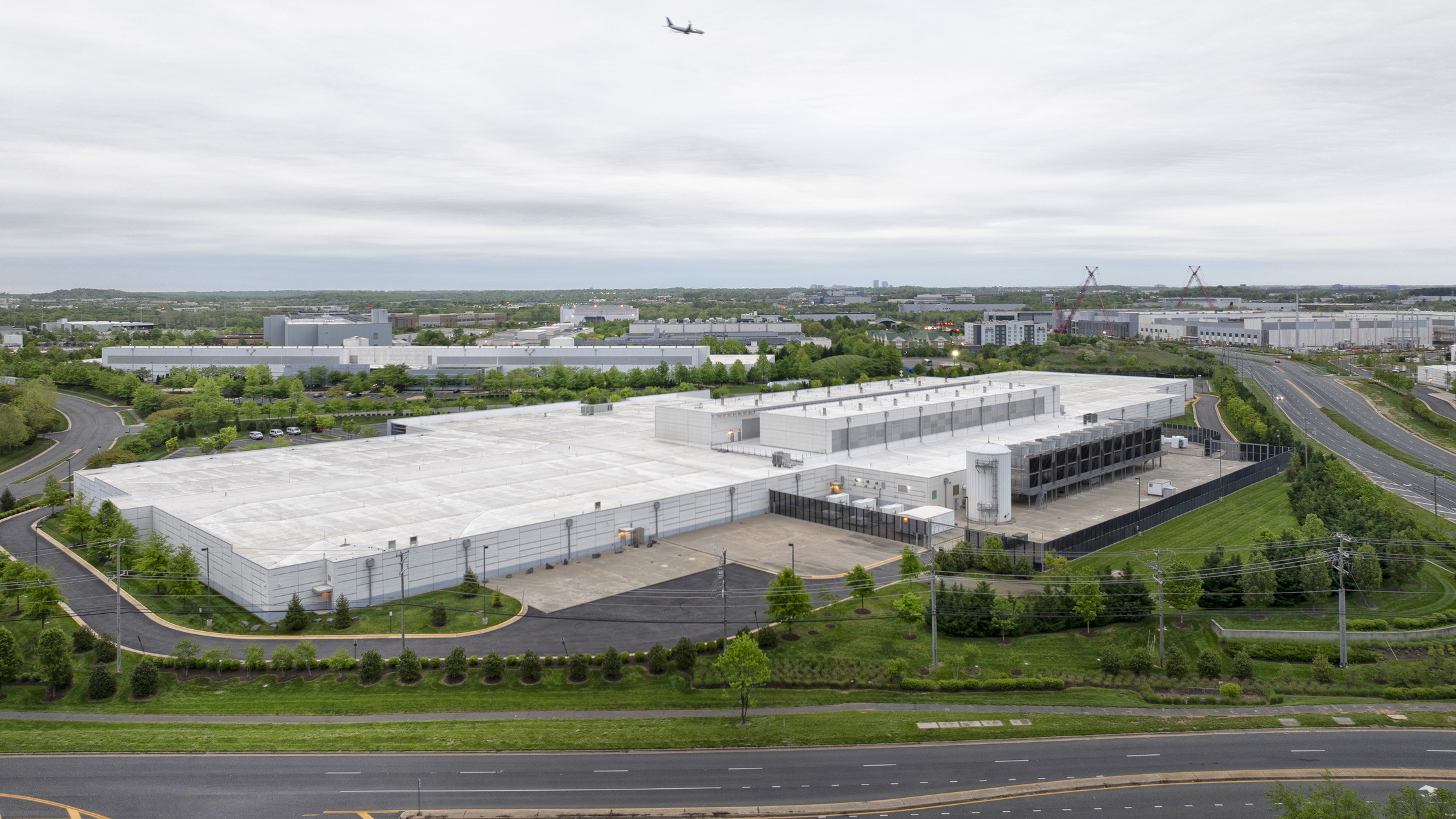
- President Biden issues executive order to advance U.S. artificial intelligence (AI) infrastructure: President Biden issued an executive order directing agencies to lease federal land for “gigawatt-scale” to support new data center construction. (AP News, WH Press Release, Jan. 14)
- 179D energy efficiency tax deduction: The Energy Department (DOE) launched the 179D Portal, offering tools for new commercial construction and retrofits to estimate energy savings and qualify for potential federal tax incentives. (DOE Press Release, Jan. 14)
- California wild fires raise electricity costs: The Los Angeles wildfires, which caused over $250 billion in damages and severely impacted the region’s electrical infrastructure, have driven a nearly 50% increase in California’s residential electricity rates since 2019, raising concerns about the fairness of passing these wildfire-related costs onto customers. (Politico, Jan. 15)
- Maryland building emissions standards lawsuit: A coalition of trade organizations filed a federal lawsuit arguing that the Maryland Building Energy Performance Standards (BEPS) is illegal because it is “pre-empted” due to its conflict with federal laws. The Maryland law mandates large buildings to reduce greenhouse gas emissions by 20% within five years and achieve net-zero emissions by 2040. The lawsuit claims the rules exacerbate the housing crisis, strain the power grid, and violate consumer choice. (Baltimore Banner, Jan. 14 | (Baltimore Sun, Jan. 16)
